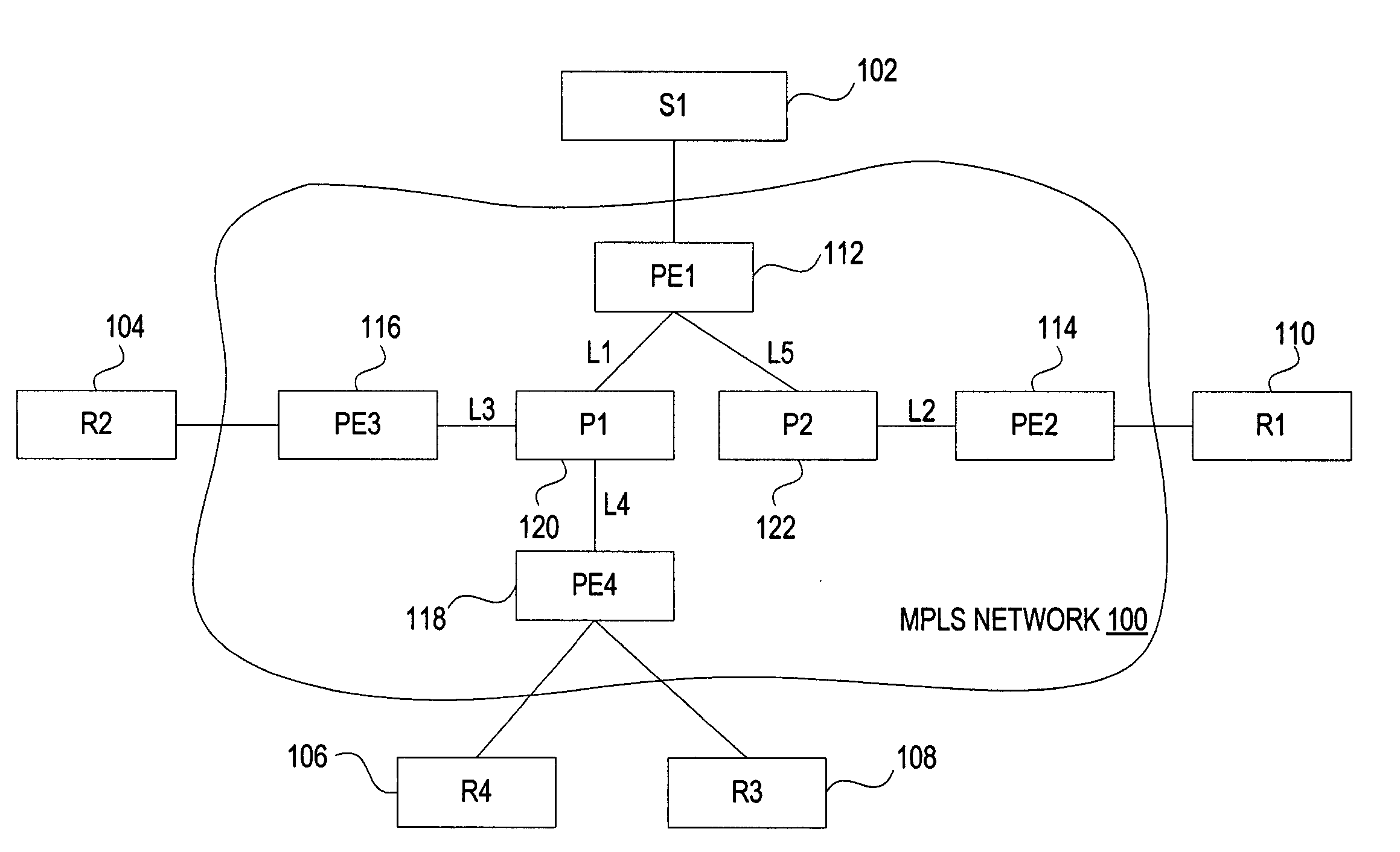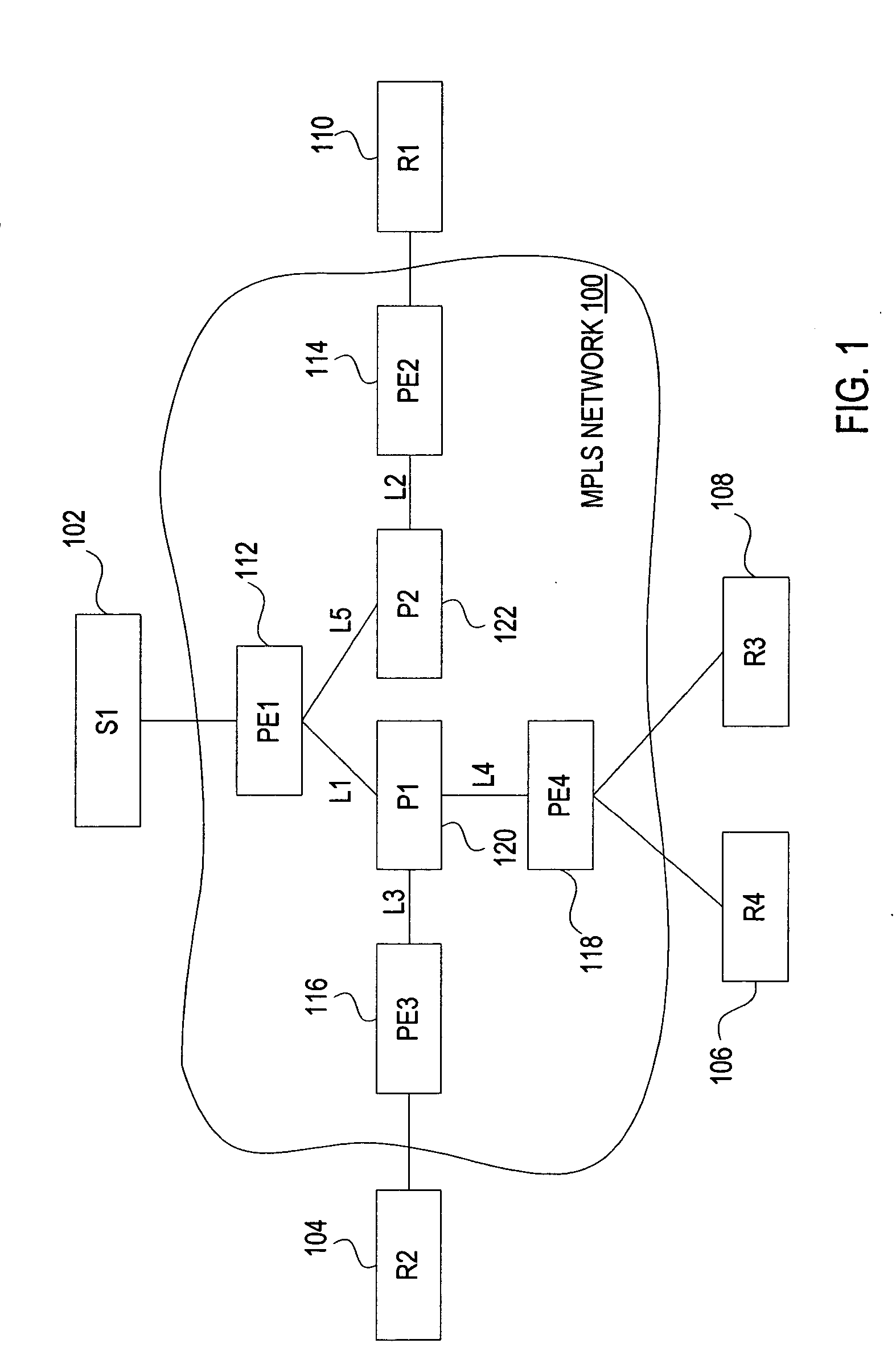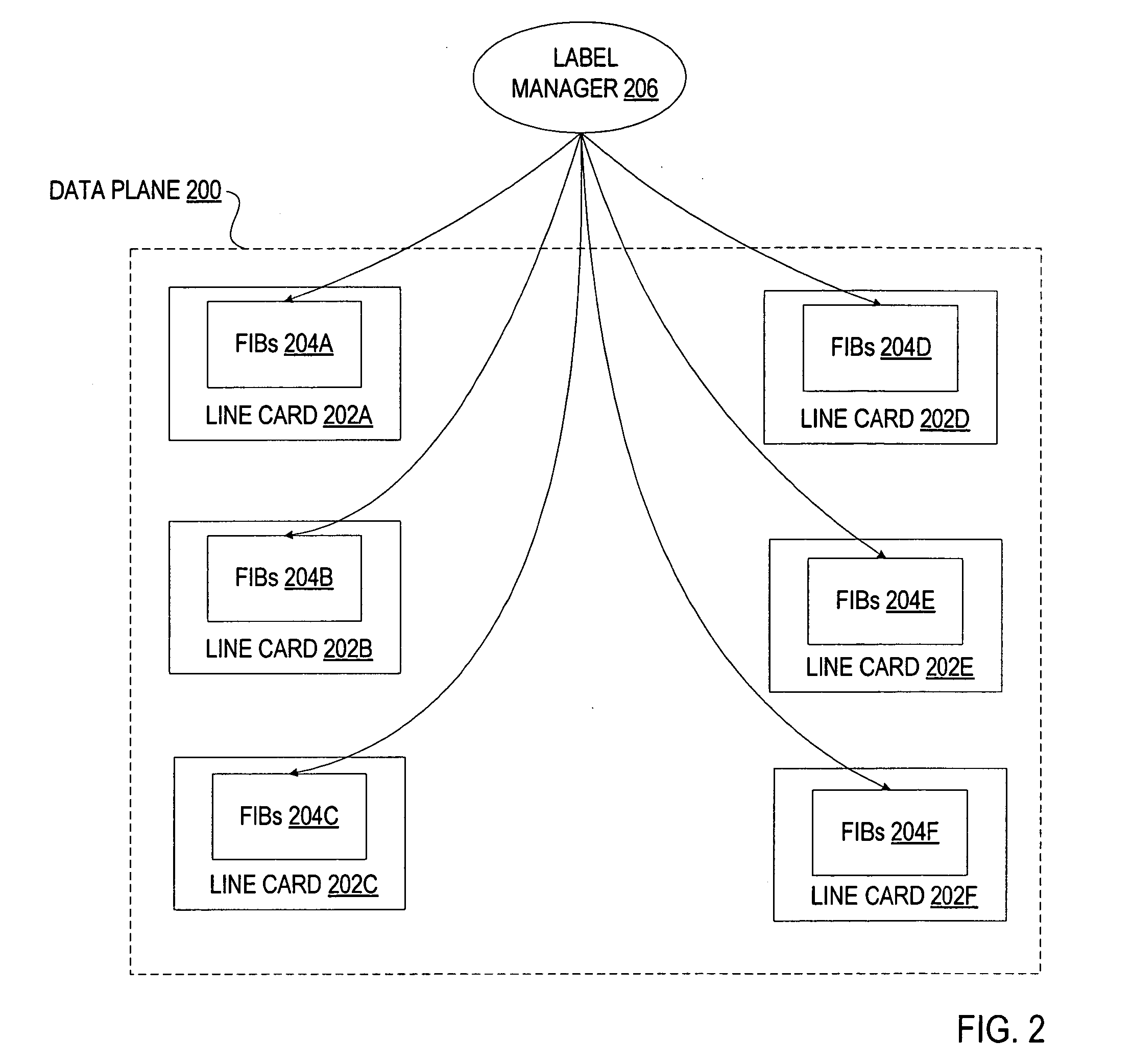MPLS traffic engineering for point-to-multipoint label switched paths
a technology of point-to-multipoint label switching and traffic engineering, applied in the field of communication, can solve the problems of not providing a mechanism for building point-to-multipoint (p2 mp) te lsps, significant overhead, and the approach of yasukawa, et al
- Summary
- Abstract
- Description
- Claims
- Application Information
AI Technical Summary
Problems solved by technology
Method used
Image
Examples
Embodiment Construction
[0030] In the following description, numerous specific details are set forth to provide a thorough understanding of the invention. However, it is understood that the invention may be practiced without these specific details. In other instances, well-known circuits, structures, standards, and techniques have not been shown in detail in order not to obscure the invention.
[0031] A method and apparatus for providing point-to-multipoint (P2 MP) label switch paths (LSPs) in a Multi-Protocol Label Switching (MPLS) network is described. In one embodiment, extended Resource Reservation Protocol known as RSVP Traffic Engineering (RSVP-TE) is used to signal a P2 MP LSP as separate point-to-point (P2P) LSPs associated with multiple receivers participating in a session. The separate P2P LSPs are then merged into a P2 MP LSP using RSVP semantics. In one embodiment, each P2 MP LSP is associated with a unique identifier that is used to recognize all the P2P LSPs belonging to the same P2 MP LSP.
[0...
PUM
 Login to View More
Login to View More Abstract
Description
Claims
Application Information
 Login to View More
Login to View More - R&D
- Intellectual Property
- Life Sciences
- Materials
- Tech Scout
- Unparalleled Data Quality
- Higher Quality Content
- 60% Fewer Hallucinations
Browse by: Latest US Patents, China's latest patents, Technical Efficacy Thesaurus, Application Domain, Technology Topic, Popular Technical Reports.
© 2025 PatSnap. All rights reserved.Legal|Privacy policy|Modern Slavery Act Transparency Statement|Sitemap|About US| Contact US: help@patsnap.com



